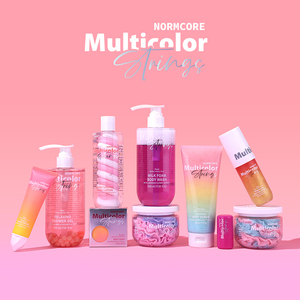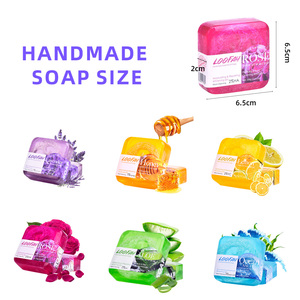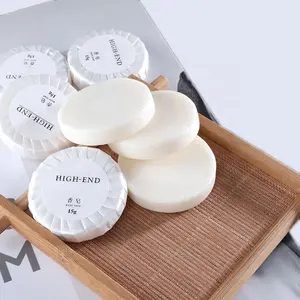(296881 products available)




































































































































































































Soap is a cleansing product made by mixing oils and fats with an alkali. When it comes to different types of soap, there are many options available in the market. Each type has something unique to offer. Here are some popular varieties.
Antibacterial soap
Antibacterial soap is famous for its ability to kill bacteria. It contains specific ingredients like triclosan and triclocarban that help fight germs. Regular soap may not be enough to wash away bacteria. Using this type of soap is essential, especially after using the toilet, before eating, and when someone is sick.
Castile soap
Castile soap originated in the Castile region of Spain. It's a vegetable-based soap made from olive oil. Traditionally, it was only made with olive oil. However, other manufacturers now add different plant oils to make them more moisturizing. Castile soap is gentle and versatile. People use it to wash their hair, body, and even their pets.
Glycerin soap
Glycerin soap stands out from other soap types. It contains a high concentration of glycerin, which is a natural moisturizer. Glycerin soap hydrates and moisturizes the skin. It prevents the skin from drying after taking a bath. This soap is suitable for all skin types, including sensitive skin.
Herbal soap
As the name suggests, herbal soap is made from herbs. It also contains essential oils extracted from different plants. The ingredients used in this soap vary according to the type of herbs used. People use herbal soap to relieve different skin conditions. For example, soap made from camomile can treat skin irritations.
Organic soap
Organic soaps are made from natural ingredients. They contain plant and animal fats with essential oils. Manufacturers don't add any artificial colors or fragrances to this soap. People with sensitive skin can use organic soap. It is also suitable for people who prefer natural products.
Moisturizing soap
Moisturizing soap is formulated to add moisture to the skin. It contains ingredients like glycerin, cocoa butter, and shea butter. These ingredients help keep the skin soft and smooth. This soap is ideal for people with dry skin.
Luxury soap
Luxury soap offers more than just cleansing. It provides a pampering experience. This soap is usually handmade in small quantities. It contains quality ingredients and unique packaging. Manufacturers feature different artistic designs on the soap to make it more appealing.
Skin type:
Soaps can be chosen for different skin types. People with dry skin should use moisturizing soap bars, while those with oily skin should use astringent soaps. Using mild soaps on normal skin can keep the skin balanced and healthy, while using exfoliating soaps can help remove dead skin cells.
Ingredients:
Choosing soaps based on their natural, organic, and vegan ingredients can be beneficial for the skin. Natural ingredients like coconut oil, shea butter, and essential oils are less likely to irritate the skin. Harsh chemicals and artificial fragrances should be avoided. This is because they can cause allergic reactions or rashes. Looking for glycerin-based soaps is also helpful, as glycerin is a humectant that hydrates the skin.
Fragrance:
Soaps can be chosen based on their appealing fragrance. Certain fragrances are known to have aromatherapy benefits. For example, lavender is relaxing, citrus scents are uplifting, and vanilla is comforting. Choosing soaps with pleasing scents can enhance the bathing experience.
Packaging:
Soaps can be chosen based on their eco-friendly, travel-friendly, or gift-appropriate packaging. Eco-friendly packaging is beneficial for the environment. At the same time, travel-friendly packaging is suitable for on-the-go use. Gift-appropriate packaging makes soaps ideal for giving to others.
Brand:
Soaps can be chosen based on the reputation of the brand. Well-known and reputable brands are more likely to use quality ingredients and maintain proper manufacturing standards. Ethical brands that prioritize sustainability and cruelty-free practices are also important to consider.
Price:
Soaps can be chosen based on the buyer's budget and preferences. Many affordable options are available if looking for basic cleansing bars. Premium soaps with luxury ingredients and artisanal qualities will have a higher price tag. Considering how often the soap will be used and its overall value is important.
Body soaps are easy to use and provide a refreshing, cleansing experience. Here is a simple guide on how to use them:
How to use
First, users need to wet their bodies with warm water. Warm water opens the pores and prepares the skin for deep cleaning. Next, they rub the soap bar on their hands or a wet washcloth until it lathers. They can also directly apply the lather to their skin. For liquid soap, pour a small amount on a washcloth or sponge and create a lather.
Then, with the soap lather, users gently scrub every part of their bodies. They focus on areas prone to sweating or dirt buildup, like the underarms, neck, and feet. They keep scrubbing for at least 20 seconds to remove germs thoroughly. They rinse off the soap with warm water, starting from their head and flowing downwards. They keep rinsing until all the soap is washed away. Finally, they reach for a clean towel and pat their skin dry.
Product Safety
Modern body soaps are formulated to clean the skin gently. Be it bar soap, liquid soap, or foaming soap, the formulas are designed to be mild on the skin. Most soaps have neutral pH levels that match the skin. This prevents any acidity or alkalinity from causing irritation. Soaps also contain moisturizers like glycerin. It counteracts any drying effect the cleanser may have on the skin. Glycerin locks in moisture to keep the skin smooth. For safety, users must only apply soap approved for use on the body. Facial cleansers are not suitable for hand and body use. They can cause rashes and itchiness. Soaps made for body use are clinically tested to be safe for that purpose.
Soaps have many functions depending on the type. For example, antibacterial soaps kill bacteria and help prevent infection. They are especially useful for people with cuts or open wounds. Another functional soap is glycerin, which keeps the skin moisturized. People with dry skin often use it.
Many soaps have unique features that make them stand out. For example, travel-sized soaps are convenient for on-the-go use. They are small and easily fit into any bag. Another unique soap is the whipped one. It has a light and fluffy texture, like whipped cream, making it luxurious.
Soaps also come in various designs. For example, shaped soaps are designed to look like objects, animals, or people. They are fun and perfect for kids. Layered soaps have different colors and textures in separate layers. This can create a beautiful, multicolored bar of soap. Soaps with embedded items, like flowers or beads, add visual and tactile interest.
Q1. Is glycerin soap good for the skin?
A1. Glycerin soap is good for the skin. It contains glycerin, an excellent skin moisturizer. It naturally draws water to the skin and locks it in, keeping it hydrated. Glycerin also has a cooling effect on the skin and makes it look healthy and glowing.
Q2. Does glycerin soap lighten the skin?
A2. Glycerin soap does not have skin-lightening properties. It will not lighten dark skin areas. However, it helps improve the skin's appearance by removing dirt and impurities and keeping it hydrated. For skin brightening, soap with ingredients like Kojic acid and papaya extracts will be a better option.
Q3. What are the disadvantages of glycerin soap?
A3. Glycerin soap has high humectant properties. It can make the skin feel sticky or greasy in hot and humid weather. Soap made with high glycerin concentration can become hard in water and difficult to use. Glycerin soap also lacks moisturizing and hydrating ingredients like shea butter, coconut, and olive oil. Adding those ingredients will make the soap bar less drying and more beneficial for the skin.
Q4. Which soap is best for daily use?
A4. The best soap for daily use depends on what the buyer wants. Glycerin soap is a great and safe option for people who want a natural, hydrating, and non-drying soap. It is suitable for all skin types and can be used on the face and body. They are available in clear and opaque varieties. Scented and unscented options cater to different users' needs and preferences.
Q5. What should one look out for when buying soap?
A5. When buying soap, check the ingredients list and opt for natural and organic options. Choose a soap that meets the user's skin needs. For example, glycerin soap for hydration and moisturizing, exfoliating soap for skin peeling, and brightening soap for skin lightening. Consider the fragrance and packaging.